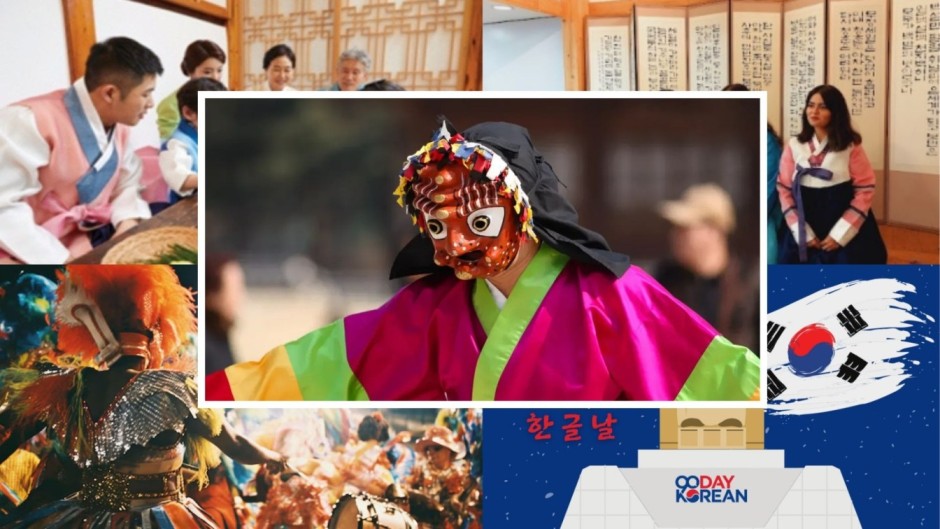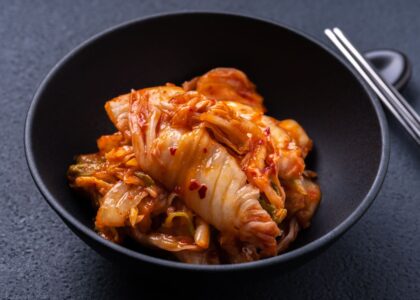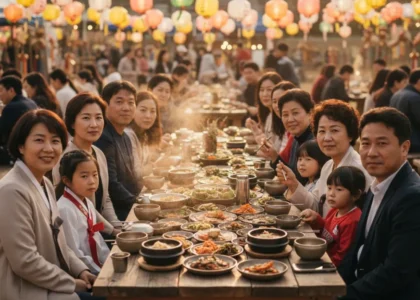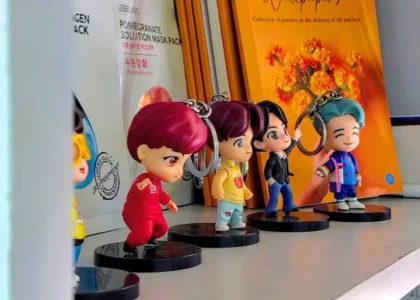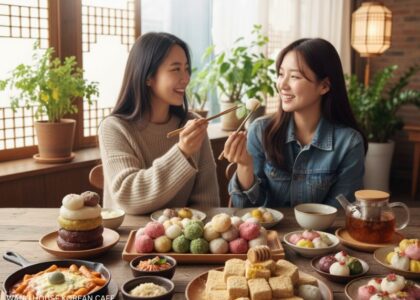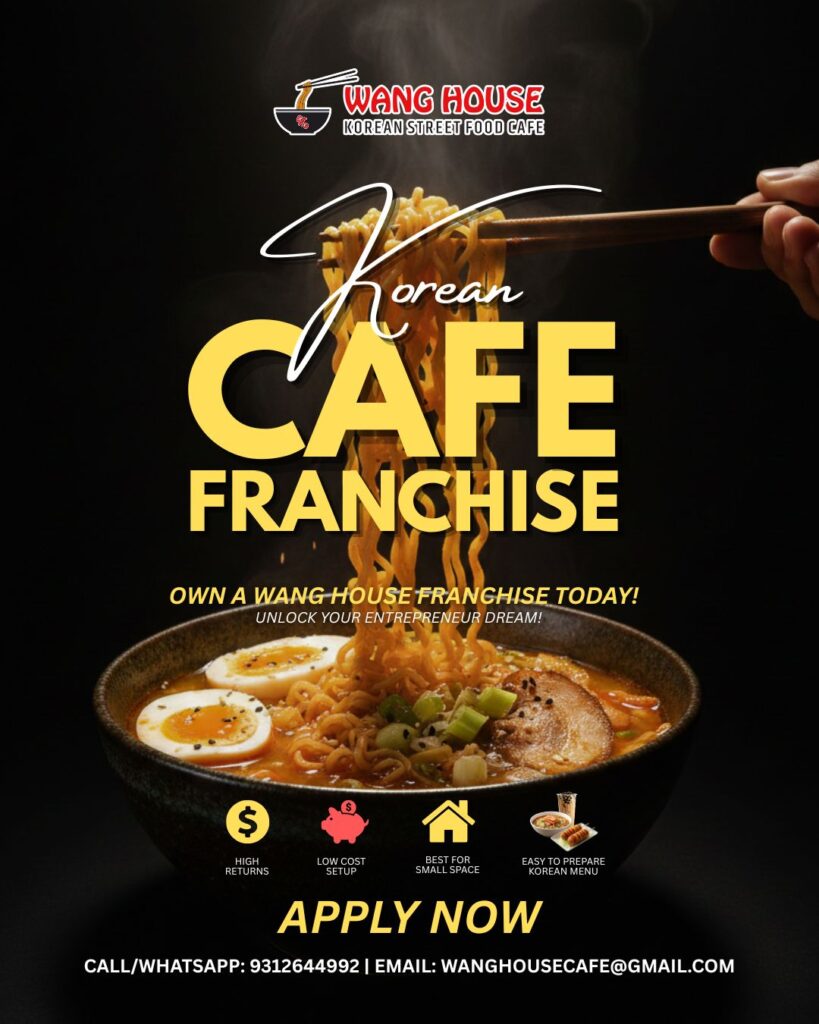Korean culture is making waves in India, captivating hearts with its rich traditions, vibrant festivals, and unique culinary offerings. Among the most exciting aspects of this cultural exchange is the celebration of Korean festivals like Chuseok and Seollal. These occasions are significant in Korean tradition, bringing families together to honor ancestors and enjoy a variety of delicious dishes. In India, these festivals have become a gateway to exploring the essence of Korea, blending tradition with modern festivities.
The growing popularity of Korean food, fueled by the influence of K-pop, K-dramas, and Korean films, has sparked a revolution.
This culinary revolution is spreading across India, bringing authentic Korean dishes into the spotlight.
Major cities like Delhi are embracing this trend, with Korean restaurants showcasing authentic flavors that resonate with food lovers. These festivals create a delightful fusion of culture and cuisine.
They allow Indians to experience the warmth and richness of Korean traditions.
Did you know why Korean Food is one of the healthiest foods? CLICK HERE TO KNOW MORE
The Rise of Korean Food in India
In recent years, the popularity of Korean food in India has witnessed an incredible surge. The growing influence of K-pop, K-dramas, and Korean films is driving this surge.
These cultural phenomena have ignited curiosity and appreciation for Korean things, with food taking center stage. As a result, people across the country are eagerly searching for the best Korean restaurant in their city. They want to experience the authentic flavors of Korea.
In cities like Delhi, Korean restaurants have risen to the occasion by offering a diverse menu of dishes.
These dishes highlight the vibrant and bold flavors of Korean cuisine, from spicy ramen to sizzling bulgogi.
They have seamlessly integrated into Indian food culture, becoming crowd favorites at festivals and special occasions.
Whether you’re a K-culture enthusiast or a food adventurer, exploring Korean cuisine in India is a delightful journey worth taking.
Korean Festivals in India
- Chuseok: The Korean Harvest Festival

People celebrate Chuseok, one of Korea’s most cherished traditional holidays, to honor ancestors and express gratitude for the year’s harvest. This festival is deeply rooted in family traditions.
It holds cultural significance. In recent years, Chuseok has found its way to India.
Korean communities and cultural enthusiasts come together to celebrate its essence.
A highlight of Chuseok is its culinary spread, which features dishes like Songpyeon. People make Songpyeon as crescent-shaped rice cakes filled with sweet ingredients. Jeon are crispy savory pancakes.
Many Korean restaurants in India, especially in cities like Delhi, embrace the festival by including these delicacies. Celebrating Chuseok in India offers an authentic taste of Korean culture, fostering a beautiful cultural exchange through food and festivities.
Why You Need to Try Korean Food in the Chuseok Feast? CLICK HERE TO READ
- Seollal: Korean Lunar New Year

Seollal, the Korean Lunar New Year, symbolizes a fresh start and holds great significance. Families come together to celebrate and pay respect to their ancestors. Families engage in traditional rituals like Sebae, a deep ceremonial bow to elders during the celebration. Central to the festivities is a sumptuous feast featuring iconic dishes like Tteokguk, a comforting rice cake soup. Tteokguk symbolizes prosperity and the beginning of a new year, while Mandu is a flavorful dumpling enjoyed in various forms.
In India, Seollal is embraced enthusiastically by Korean communities and local enthusiasts. Korean restaurants often curate special menus during this period, inviting diners to savor the festival’s spirit through authentic flavors and heartwarming meals, making it a memorable cultural experience.
- Hangeul Day

Hangeul Day, celebrated annually on October 9th, honors the creation of the Korean alphabet, Hangeul, by King Sejong the Great in the 15th century. This day holds deep significance for Koreans as it symbolizes the accessibility and empowerment that Hangeul brought to the Korean people, making literacy attainable for all.
In India, cities with vibrant Korean communities, such as Delhi, Gurugram, and Kochi, often celebrate Hangeul Day with various cultural events. These celebrations feature traditional Korean performances, such as drumming and dance, showcasing the rich heritage of Korea. Organizers also arrange Korean food fairs, where food lovers enjoy popular dishes like Bibimbap, a rice bowl with mixed vegetables and protein, and Rabokki, a delicious fusion of ramen and tteokbokki (rice cakes), offering a taste of Korea’s culinary traditions.
Why Korean Street Food is a Must-Try for Food Lovers! CLICK HERE
- Dano Festival

The Dano Festival, held on the 5th day of the 5th month of the lunar calendar, is a traditional celebration in Korea dedicated to health, well-being, and the protection of one’s family. The festival is deeply rooted in customs that promote good health and drive away evil spirits. It often involves wearing special clothing, enjoying outdoor activities, and performing rituals to ensure a prosperous year ahead.
In India, where Korean communities thrive, people celebrate the Dano Festival with much enthusiasm. Korean cafes and restaurants create special menus for the occasion, featuring traditional Korean dishes like noodles, which are believed to bring good health, and desserts like sweet rice cakes (tteok) and traditional beverages. These events not only celebrate Korean culture but also offer a chance for the Indian community to experience unique Korean culinary traditions and celebrate health and well-being together.
Indian Festivals in Korea
Indian festivals like Diwali and Holi have gained popularity in Korea, reflecting the growing presence of the Indian community in the country. These vibrant celebrations bring together people from diverse backgrounds, offering a unique opportunity for cultural exchange. In Korea, Diwali is celebrated with great enthusiasm, featuring traditional Indian food stalls, colorful decorations, and firework displays. Similarly, Holi, the festival of colors, has become a much-anticipated event, where participants gather to throw colored powders and celebrate with music and dance.
Korean and Indian communities come together to share their cultures, traditions, and customs. Korean attendees often enjoy Indian dishes such as biryani, samosas, and sweets like ladoos, while enjoying traditional music and dance performances like Bollywood-style choreography. These cultural exchanges not only strengthen the bond between both communities but also enrich the cultural fabric of Korea, fostering a deeper appreciation for Indian traditions.
What Are the Top 5 Tourist Places Near Wang House Laxmi Nagar?
Popular Korean Foods to Try at Festivals
If you’re eager to try Korean food in India, especially during festivals, here are some popular dishes you should sample:
Mini Gimbap
Chefs prepare mini gimbap as a bite-sized version of traditional gimbap, making it with steamed rice and fillings like vegetables, egg, and sometimes meat, all rolled in seaweed. These handheld snacks are perfect for festival-goers looking for a tasty and convenient option.
Kimchi Mandu
Kimchi mandu is a Korean dumpling filled with a spicy mix of kimchi, ground meat, and vegetables. Steamed, boiled, or fried, these versatile treats offer bold flavors and pair perfectly with other festival foods.
Korean Egg Roll (Gyeran Mari)
Also known as Gyeran Mari, this rolled Omelette is filled with ingredients like vegetables, ham, or cheese. Sliced into bite-sized pieces, Korean egg rolls are a savory and satisfying option that’s easy to enjoy on the go.
Rabokki
A fusion of Ramyeon (instant noodles) and Tteokbokki (spicy rice cakes), Rabokki is a hearty, spicy, and flavorful dish. It’s a favorite street food at festivals, offering a comforting yet bold taste experience.
Spicy Ramen
Spicy ramen, made with Korean spices, is a fiery noodle soup that delivers a kick of heat with every bite. Ideal for those who love spice, it’s a satisfying dish amidst the festival festivities.
What Should You Know Before Eating Korean Food? CLICK HERE
Wang House – Korean Street Food Cafe in India
Wang House stands out as one of the best Korean street food cafes in India. Located in Delhi-NCR, Wang House offers an authentic Korean dining experience featuring popular dishes like Kimchi Ramen, Mini Gimbap, and Spicy Korean Noodles. With its Korean-themed interiors and curated menu, it’s a haven for K-food lovers and K-pop enthusiasts alike.
The Korean Food Experience in India
The growing number of Korean restaurants in cities like Delhi, Gurugram, and Kochi has made it easier for food lovers in India to experience authentic Korean cuisine. These restaurants offer a diverse menu featuring popular Korean dishes, allowing diners to explore the rich and bold flavors of Korean food. Whether you’re a fan of spicy dishes or looking to try something new, Korean food in India is becoming increasingly accessible.
If you’re unsure where to start, we recommend trying some of the most iconic Korean dishes like Tteokbokki, spicy rice cakes coated in a sweet and spicy sauce, or Samgyeopsal, grilled pork belly served with lettuce and condiments. These dishes offer a great introduction to Korean flavors.
Korean food festivals, often hosted by the best Korean restaurants in India, provide food enthusiasts with an opportunity to experience traditional Korean food recipes firsthand. These events are a vibrant fusion of flavors, making them a must-attend for anyone wanting to dive deeper into Korean culinary traditions.
Healthy Korean Food Options
One of the standout features of Korean cuisine is its focus on healthy ingredients. Many traditional Korean dishes are packed with nutrients, making them an excellent choice for those seeking a balanced diet.
Bibimbap, for instance, is a colorful dish made with rice, mixed vegetables, a fried egg, and often a source of protein like tofu or meat. The variety of vegetables and the combination of flavors make it both delicious and nutritious.
Kimchi, a fermented vegetable dish, is another health-packed option. Rich in probiotics and vitamins, it supports digestion and boosts immunity. These dishes, along with others like Korean-style soups and stews, provide a perfect balance of taste and nutrition for health-conscious food lovers.
Conclusion: Embracing Korean Culture in India
As the cultural exchange between Korea and India continues to grow, so does the popularity of Korean food and traditions in India. The increasing presence of Korean food festivals and the diverse Korean food menus offered at restaurants in cities like Delhi, Gurugram, and Kochi provide a unique opportunity to explore the rich flavors of Korea while celebrating its vibrant culture.
Share your experiences on social media platforms using hashtags like #KoreanFoodIndia and #KoreanFestivals to inspire others to join this cultural journey.
Whether you’re a K-pop enthusiast, a fan of Korean drama, or someone curious about tying Korean cuisine, the best Korean restaurants in India are ready to offer you a taste of Korea. By visiting these establishments during Korean festivals and tagging your favorite moments online, you can connect with a growing community of K-food lovers.
Celebrate Korean festivals in India by immersing yourself in the exciting culinary journey and embracing the cultural diversity that these celebrations bring.

